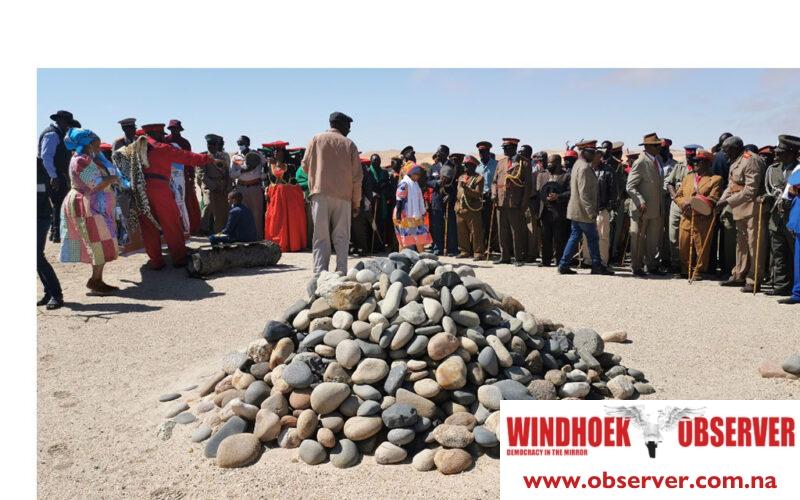Martin Endjala
Nandiuasora Mazeingo, the Ovaherero Genocide Foundation’s (OGF) chairman, rejected the declaration of Genocide Remembrance Day by the cabinet on Tuesday, labelling it as part of the government’s denial agenda of recognising the actual events of the genocide.
Mazeingo’s response follows the minister of information, communication, and technology, Emma Theofelus’s announcement that from next year onwards 28 May will be a public holiday.
This decision was made at the 7th cabinet decision meeting recently, following a letter submitted on 18 March by the National Assembly Speaker Peter Katjavivi.
The chairman argued that the genocide of the Nama and Ovaherero people of 1904-08 was the ugliest inhuman act, adding that the incumbent government should have added it to the history of Namibian public holiday calendars as of 1990 and not 34 years later.
“We, the OGF, reject the proclaimed date marked as the genocide remembrance day because, in our context, the 2 October is the date we have been campaigning and advocating for, while our Nama brothers and sisters have been campaigning for the 22 April.
Hence, the two genocide events ought to be marked aside and not put into one day. This declaration is proof of a deliberate denial and to water down the history of the two tribes,” he said.
Mazeingo said that the proclamation was due to a motion passed in parliament, but they were not consulted on the decision or during the discussions.
He pointed fingers at those who made decisions on behalf of the genocide survivors, describing their actions as inconsiderate of those who suffered the inhumane conditions they endured.
He said that although 28 May was when concentration camps were closed by Germans, he stressed that these were just parts of the events that led to the declaration of the genocide carried out by Germans and not the actual date, and therefore, they do not recognise it.
At the time of publication, attempts to contact both the Nama Traditional Leaders Association (NTLA) secretary, Sima Luipert, and Paul Thomas proved futile.
Meanwhile, historian Kae Matundu claimed that some descendants of the genocide survivors demanded the day, not an unidentified object from space.
Stating that some descendants are cognizant that other descendants have and continue to demand other dates linked to the history of their specific communities.
“The fact that 28 May is eventually the one. Not that it is being imposed by the government, but this day goes back to 2016, when Usutuaije Maamberua, then a Swanu representative in the National Assembly, tabled a motion regarding National Genocide Remembrance Day. Eight years later, it is being realised. One would wish to believe that it took the government this long – eight years – to give the matter due consideration because of its sensitivity. It is eventually here,” he said.
He noted that some people may think that the government is doing this to buy votes.
Matundu emphasised that this means something to those who wanted it—not that it is exclusive to them, but that it is now a national day for observation and reverence by the whole nation.
According to the historian, the day is equivalent to all significant days on the national calendar. He urged people not to make a mockery of it but to rekindle the memories of those who perished for a good cause.
“This is not the only day of its kind. There are many others of equal importance historically, which we must continue to observe severally and individually in terms of our various respective communities,” said Matundu.
Joyce Muzengua, the Landless People’s Movement’s (LPM) Human Rights Command leader, said she welcomes the gazettement of Genocide Commemoration Day. However, she does not agree with the date.
“The Ovaherero and Nama people are still vanquished, and the date does not signify victory, as per the Jewish historical context that informs the 28th of May. Oppression continued after the genocide under the apartheid regime,” she said.
Muzengua said that when proposing dates for pertinent historical occurrences, there is a need to properly apply the contexts and widely consult with the Ovaherero and Nama communities that remain vanquished until the date before setting dates, as it defeats the purpose.
As a result, she said LPM maintains that October 4 should be the national commemoration day for the genocide and will continue to commemorate that day alongside the affected communities for generations to come.
In February 2020, Affirmative Repositioning chief activist Job Amupanda announced that 2 October would be Genocide Remembrance Day, with or without the government’s blessings.
This was after AR consulted the Ovaherero paramount chief, Vekuii Rukoro, who was also in agreement that such a day should be held annually.




